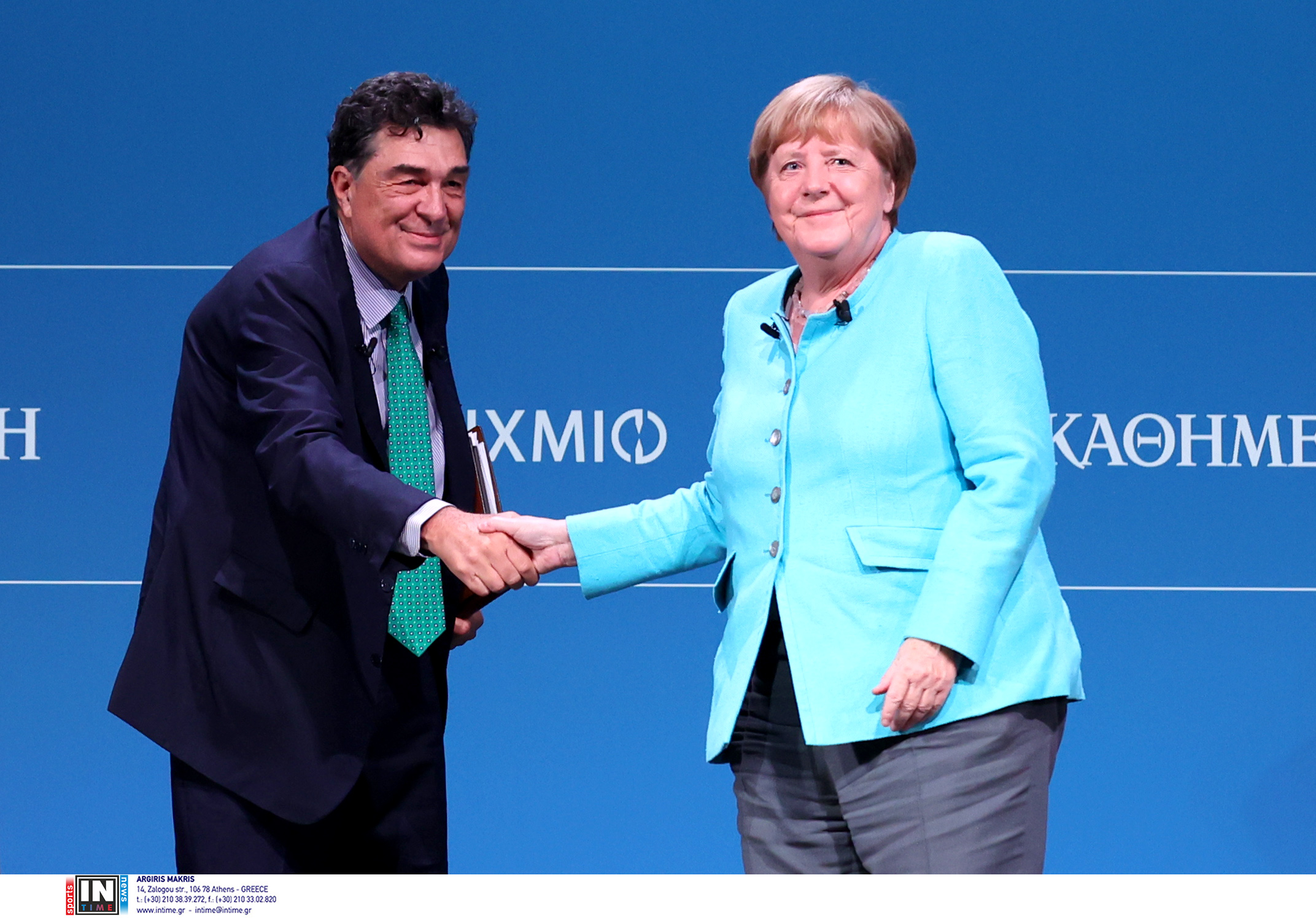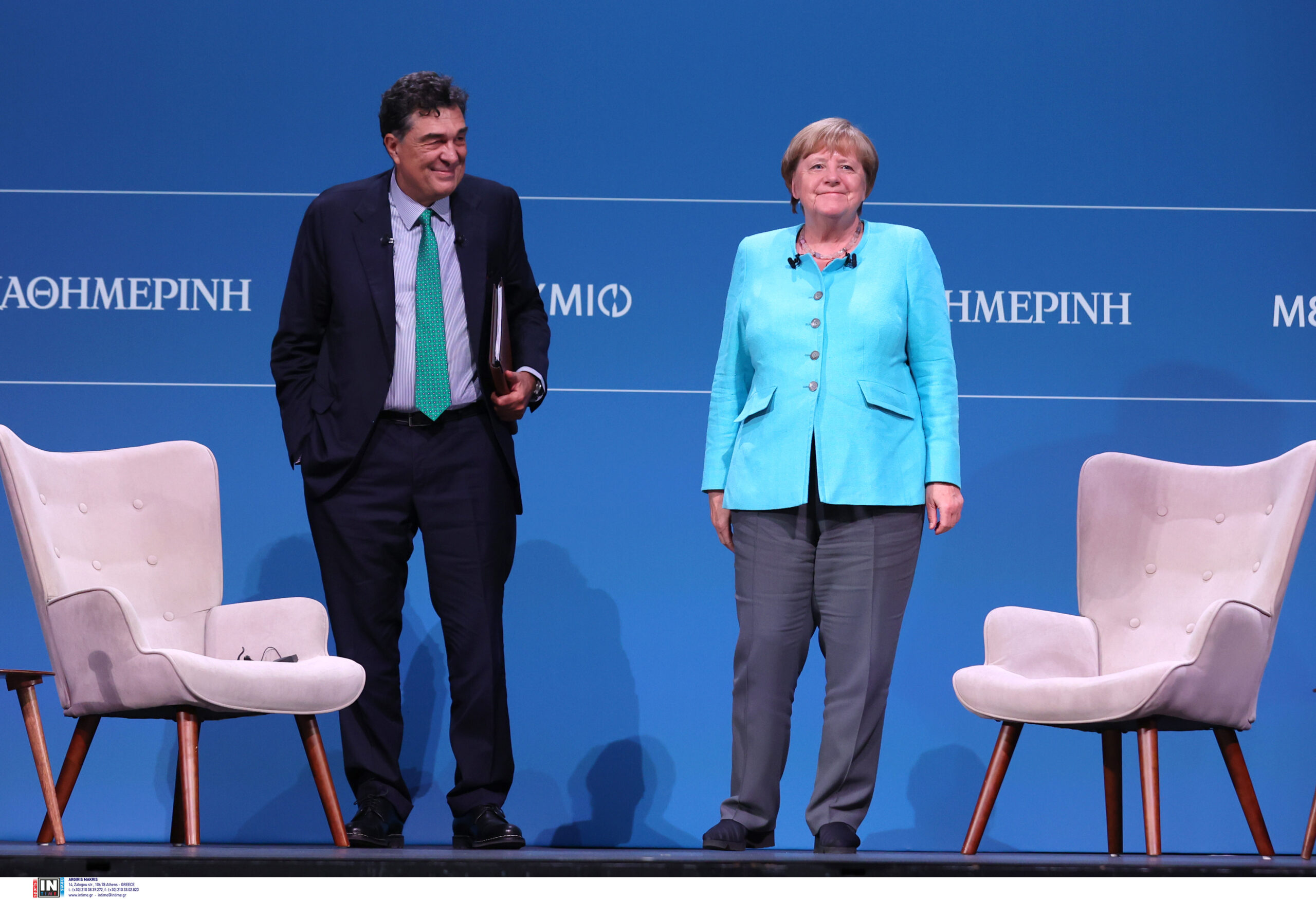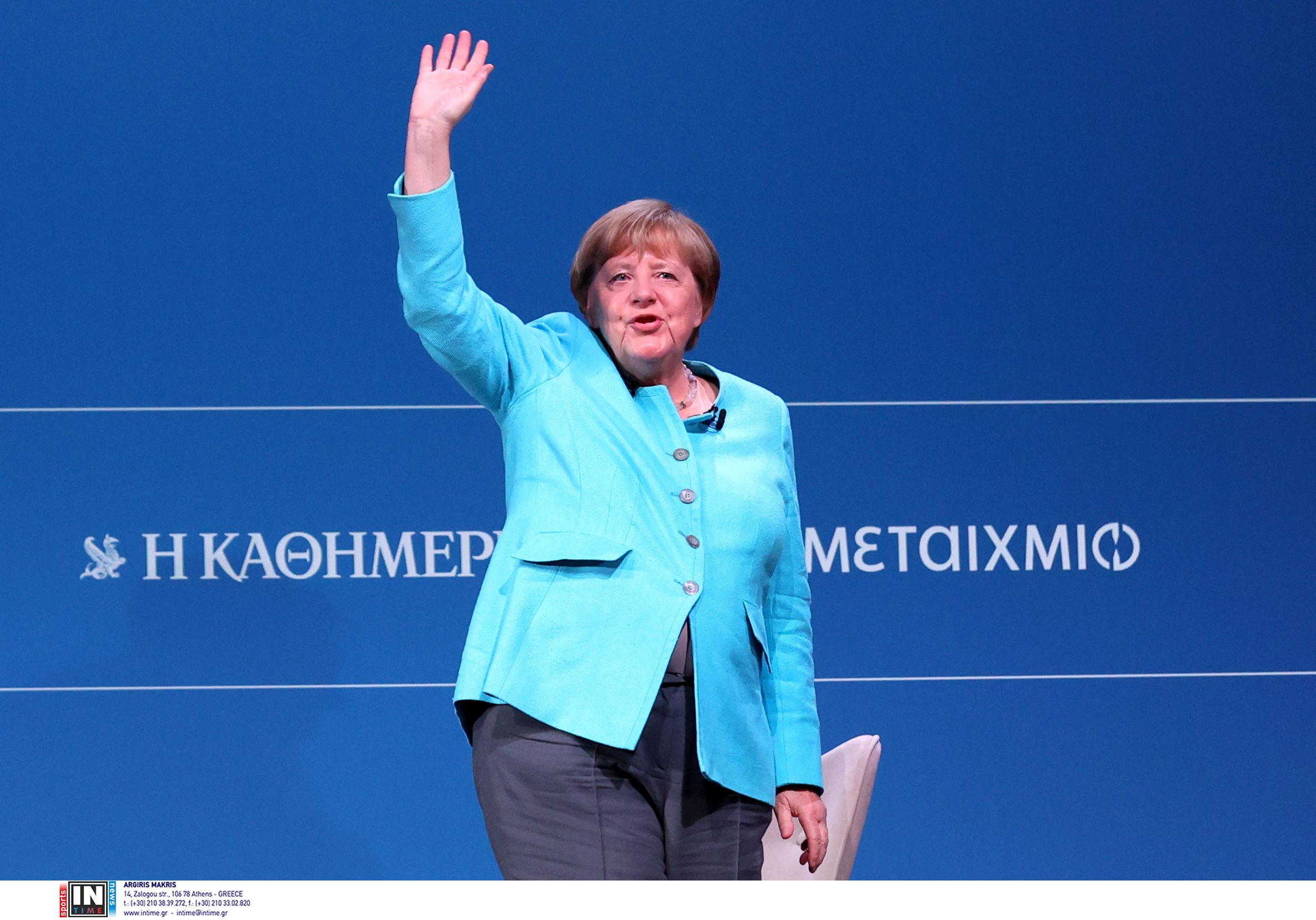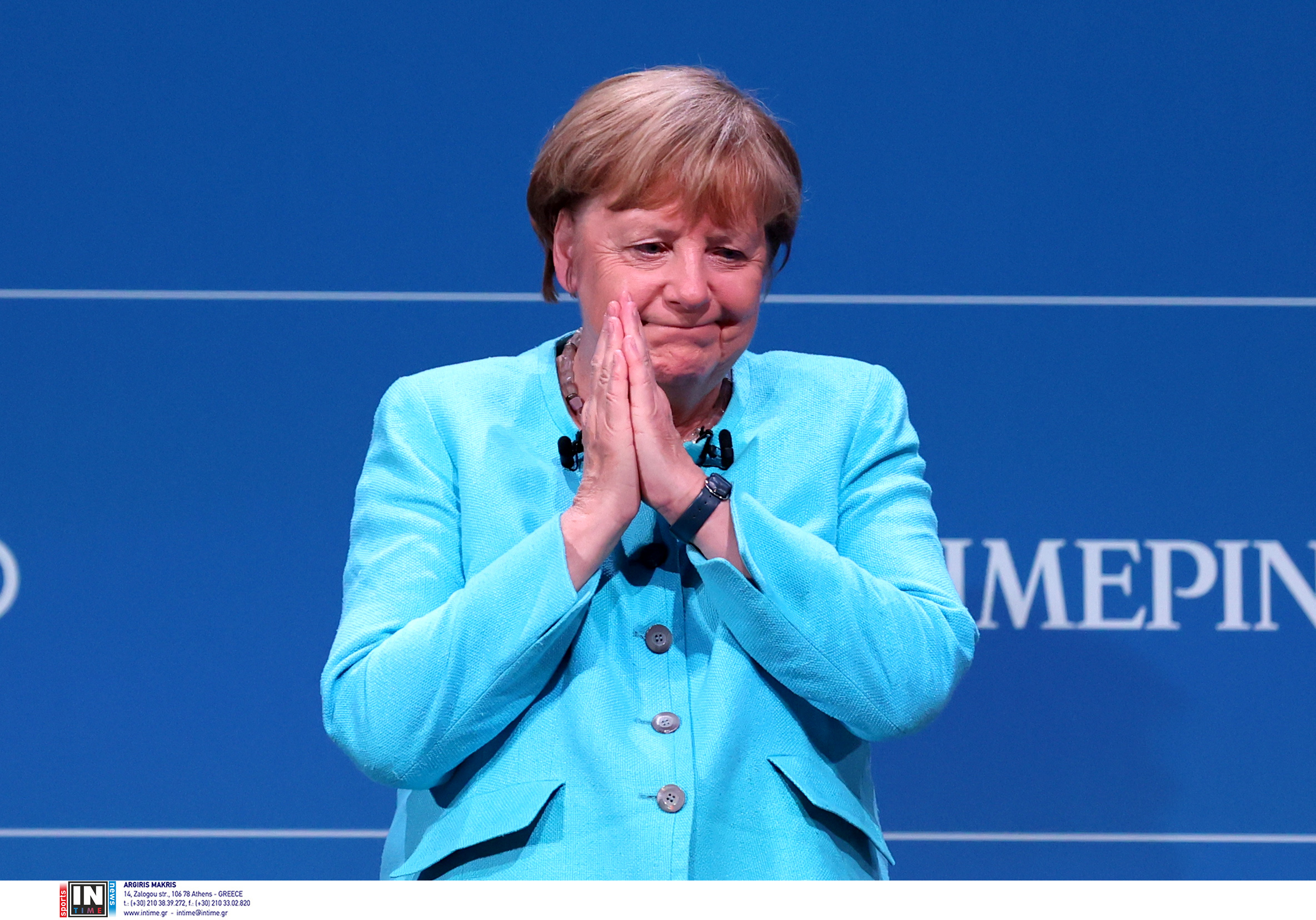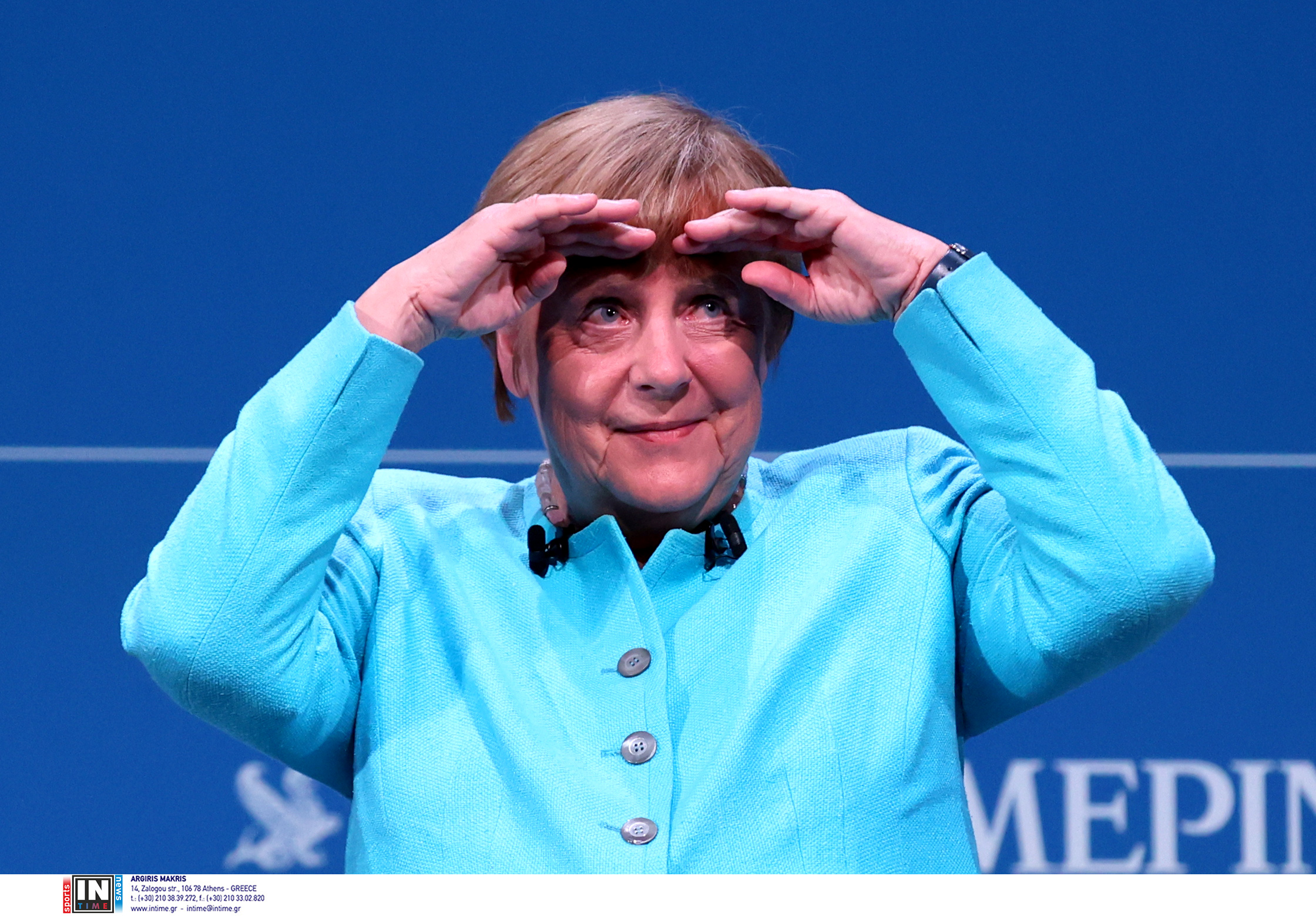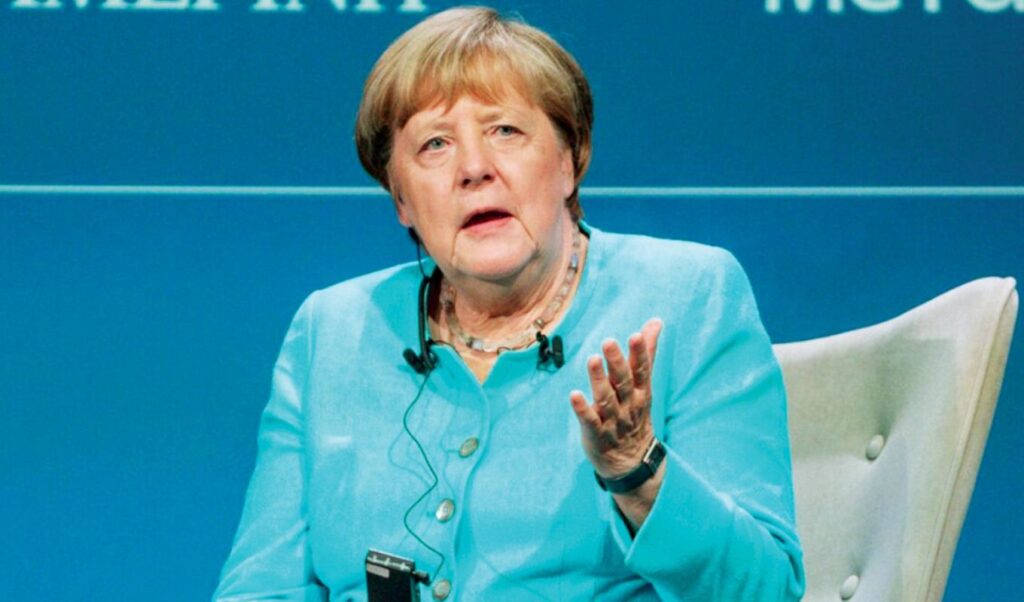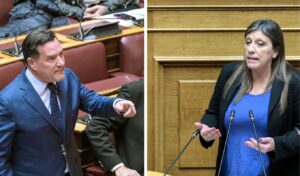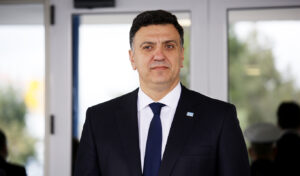In revelations about “Grexit,” the unseen aspects of the Greek economic crisis, and her “experiences” with Greek prime ministers, former German Chancellor Angela Merkel spoke in a discussion with Kathimerini director Alexis Papachelas at SNFCC, emphasizing in parts of the conversation that “Greece needed debt relief, with Trichet and Sarkozy disagreeing and how Schäuble wanted us out of the EU.”
The former German chancellor revealed that she had not properly assessed the magnitude of the crisis Greece would experience, and that during the negotiation period she was in constant communication with Wolfgang Schäuble.
“I couldn’t imagine we would experience such a crisis”
The former German chancellor stated that as chancellor she had previously worked with the Greeks and emphasized: “I couldn’t imagine we would experience such a crisis. Coming from East Germany, I believed in social economy, in the German miracle.”
“The problems Greece had to face were not expected to be so difficult. In Greece’s economic crisis, I didn’t expect that my Greek partners had to face such a problem. And regarding the refugee crisis, I can say I didn’t expect it would be such a big common problem for us.”
The magnitude of the problem became clear in February 2010.
Merkel revelations: her “experiences” with Tsipras, Papandreou and Samaras
I asked George Papandreou, “what do you want?” and he answered: “Nothing.” In the meeting, the Greek prime minister was silent, we were discussing intensely and I seemed like the bad one saying “I can’t give money.” European Council President Herman Van Rompuy interrupted the meeting and wrote a few phrases, “Greece will do what it must, we will support and the euro is our common currency.”
“I decided in 2011 that we had to do everything in our power to keep Greece in the eurozone,” Ms. Merkel said among other things and added that “the negotiations were very difficult, after Alexis Tsipras’ referendum.
Knowing that Schäuble wanted Greece out of the euro, I called him every hour and presented the situation because I wanted these decisions to be made jointly with my finance minister,” she said characteristically.
Referring to Antonis Samaras she noted: “I was the bad cop during that period. I didn’t do anything to annoy but because I was of the opinion that the country should be put on the right track. We were friends at a political level, at a party level, but we had conflicting views many times. I was on Samaras’ side because I considered that debt relief was needed (as did Schäuble), but Trichet said that if you do something like that the entire financial world will lose confidence in the eurozone. I was of the opinion that we should relieve Greece of this burden but the other side also had arguments.”
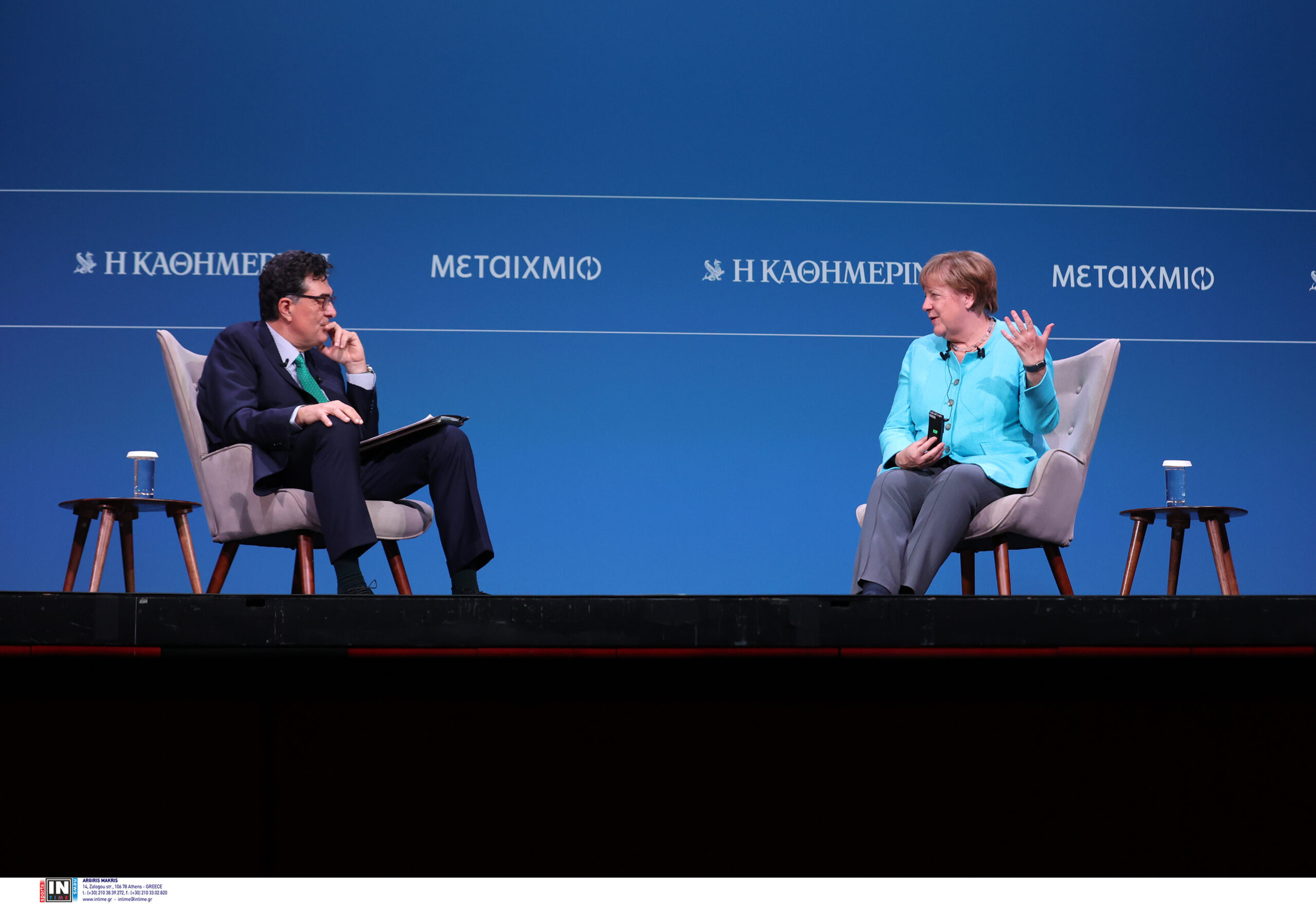
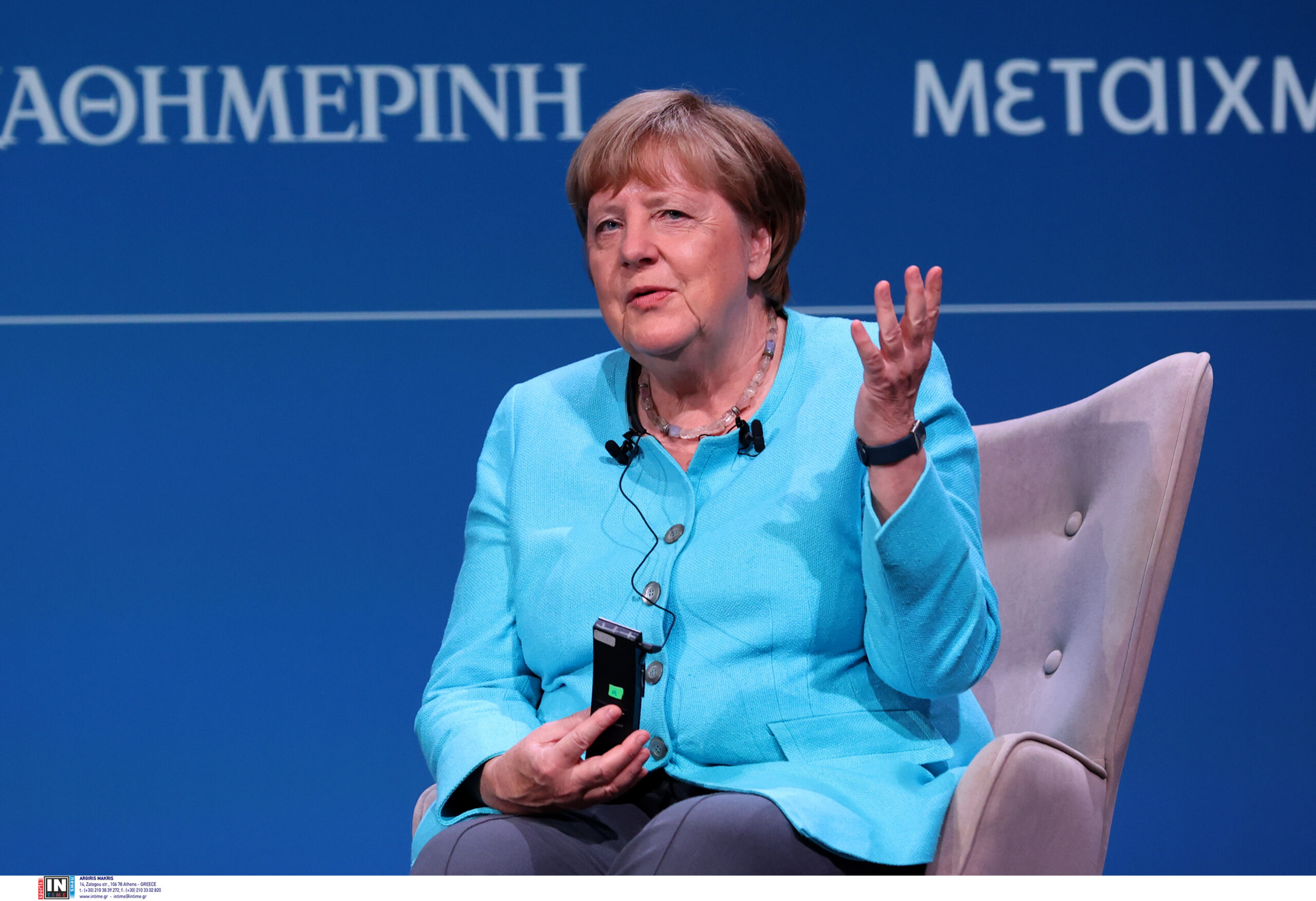
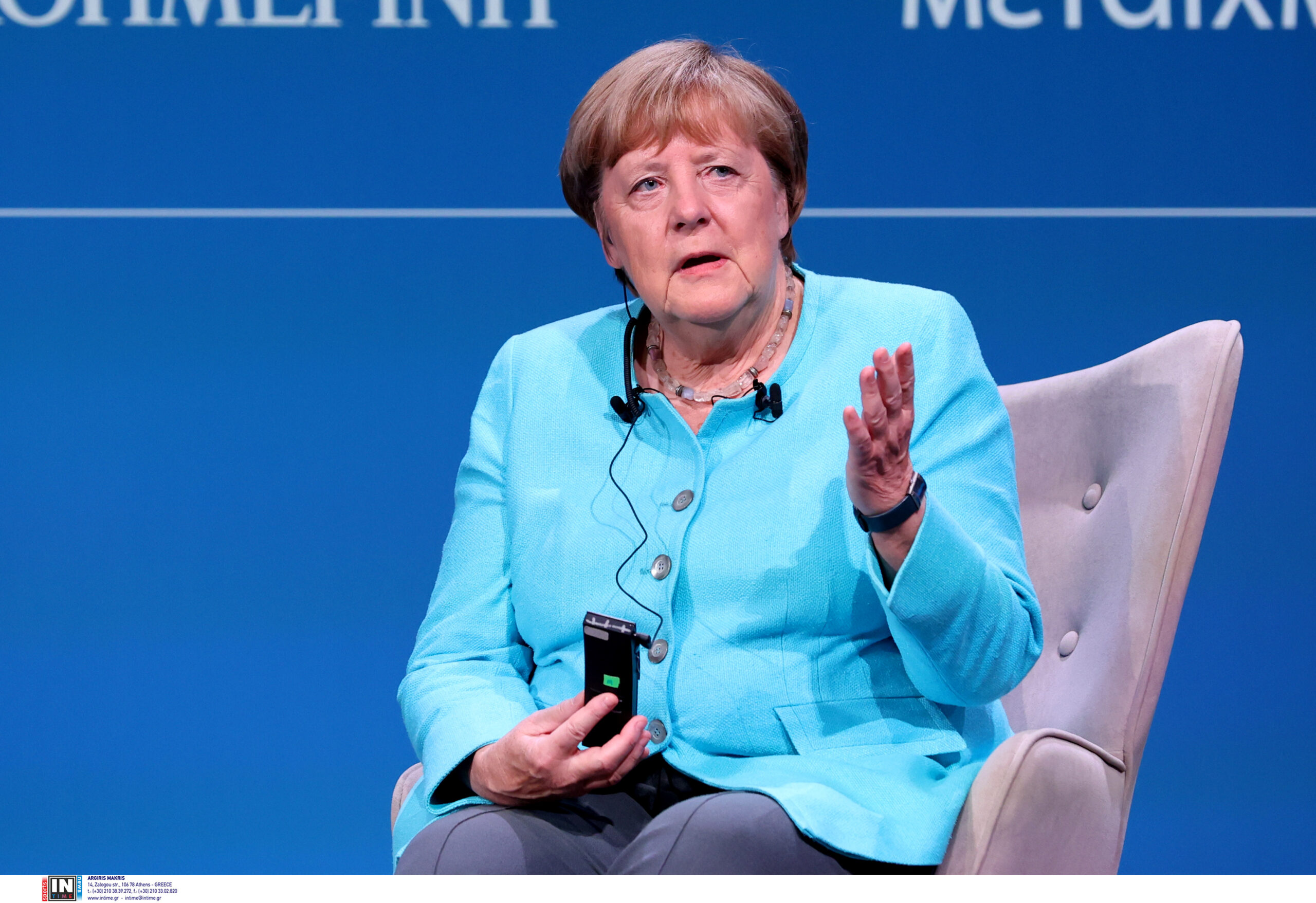
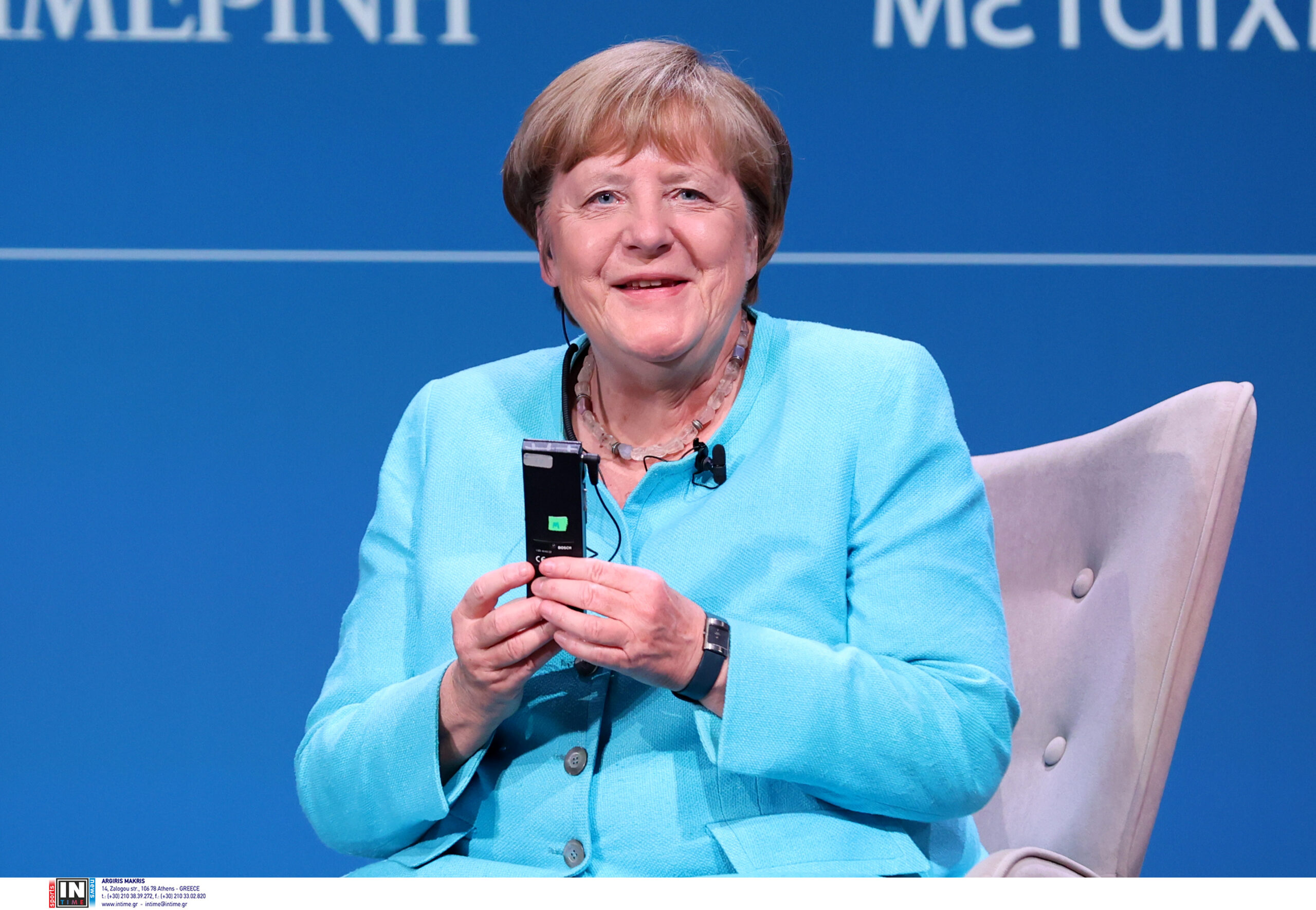
I looked at Tsipras and said “God help us”
Referring to the impressions created by her acquaintance with Alexis Tsipras, Ms. Merkel said: “I think it wasn’t that impressive the first time because it was in Brussels. Then I invited him to Berlin and the atmosphere was tense. He went and saw protesters at a demonstration in front of the Chancellery and greeted his comrades from the party… I said God help us! We hope he’ll come at some point. He came at some point and walking toward the honor guard I tell him this is bold and he tells me one must deal with his supporters. Feeling around, one came closer to the other. He considered privatizations things of the devil, it wasn’t easy“
The 17-hour negotiation
“I didn’t want him to leave the euro and he (Tsipras) didn’t want a memorandum. It was the most surprising phone call I had in my entire political career and one of the most silent phone calls,” the former chancellor said about how Tsipras informed her he would proceed with a referendum.
A few hours earlier, Tsipras had refused to say “yes” to the agreement with creditors.
Merkel asked him what he would do and Tsipras replied: “I will return to my country and speak with my government and party”
And what will be the result? Merkel asked
I don’t know, Tsipras answered.
The result of that discussion in Athens was holding a referendum. And what is your recommendation? Merkel asked Tsipras.
But of course no, Tsipras answered
“There I lost my voice,” Merkel said.
Very quickly after we finished the phone call. Hollande tells me: and now?
If it was “no,” we said this means exit from the euro, Greece didn’t agree and we said that a democracy cannot decide for all the others.
Subsequently, the former chancellor referred to what happened after the referendum – even repeating her satisfaction with the high level of the Greek team that agreed to the 3rd memorandum.
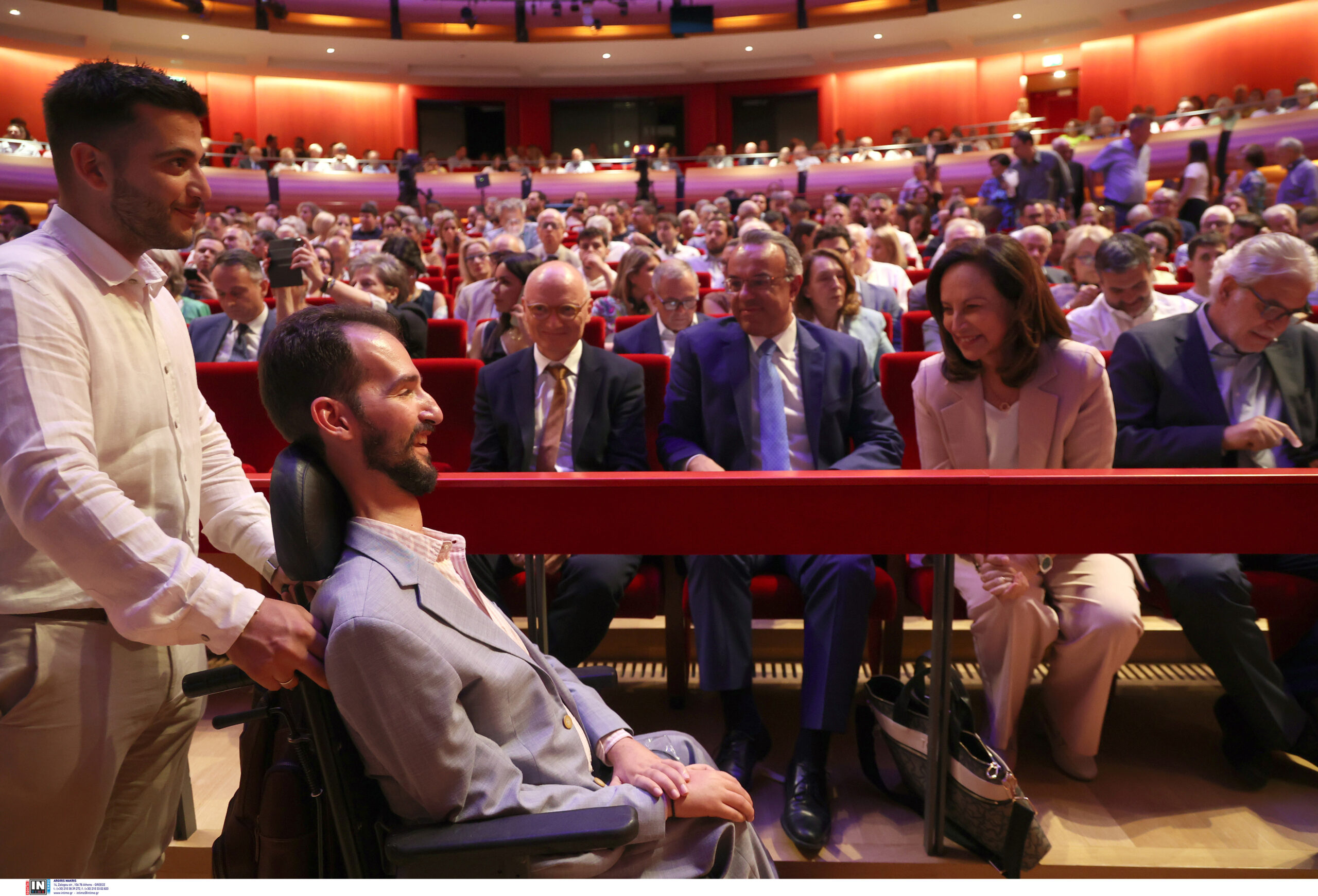
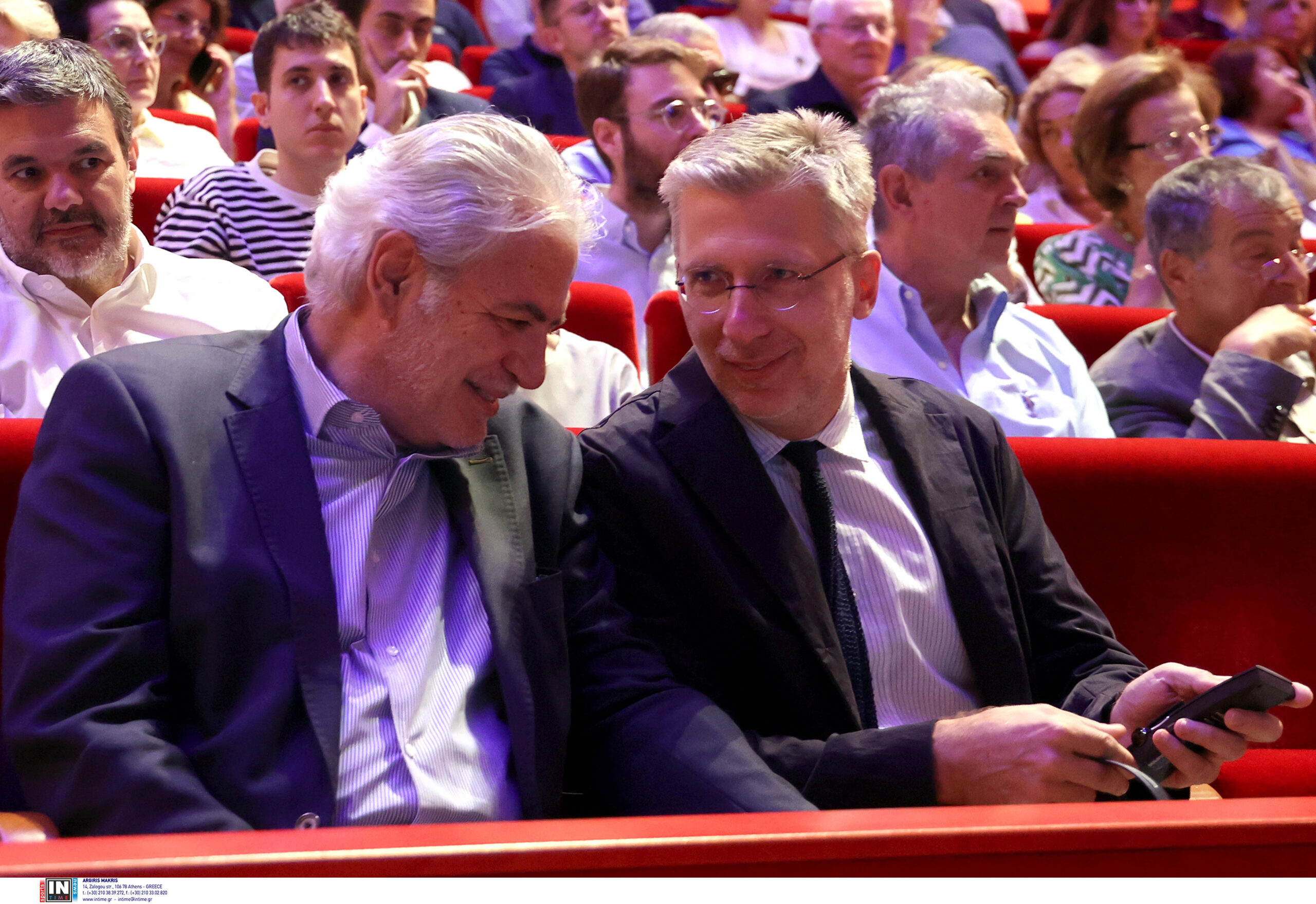
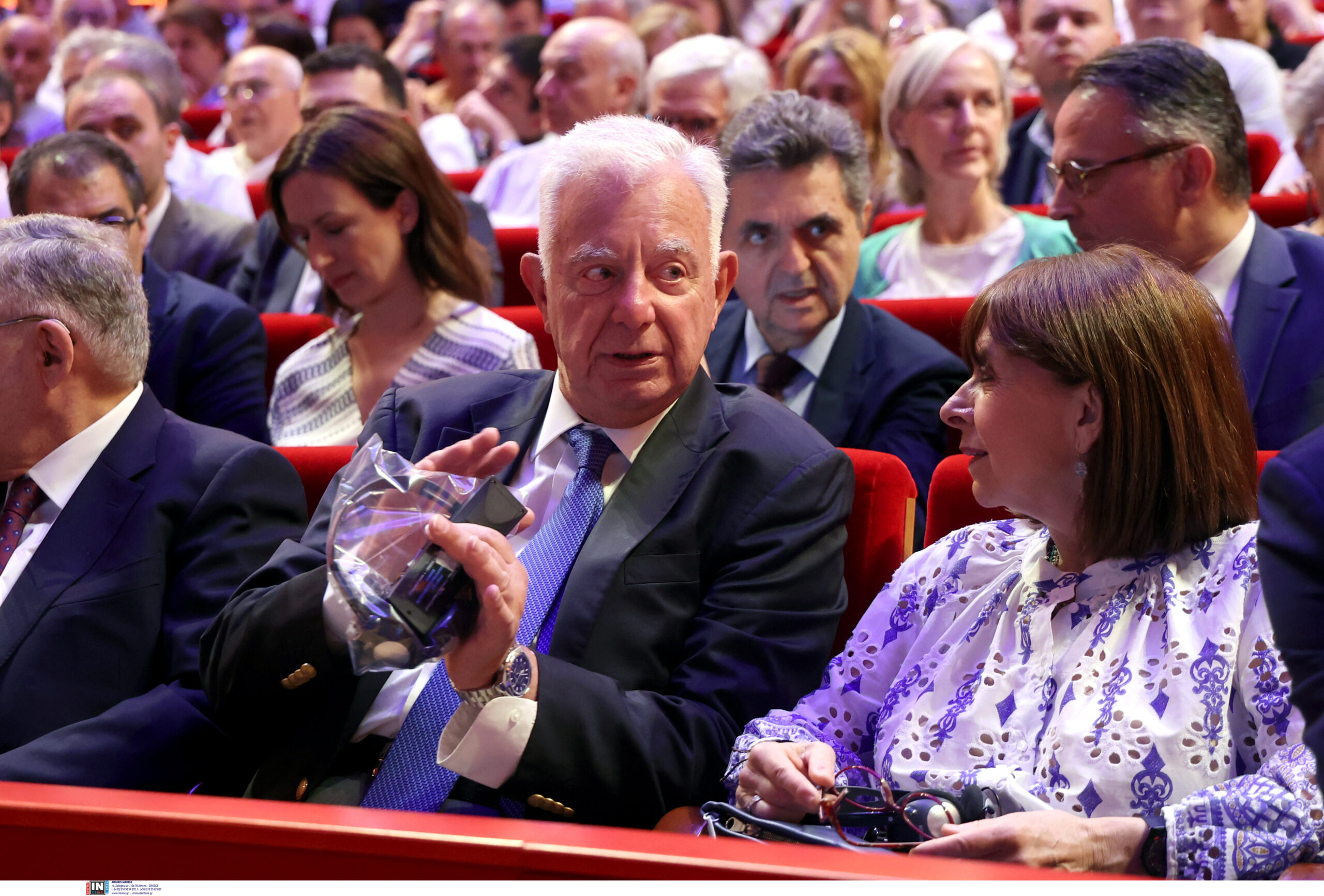
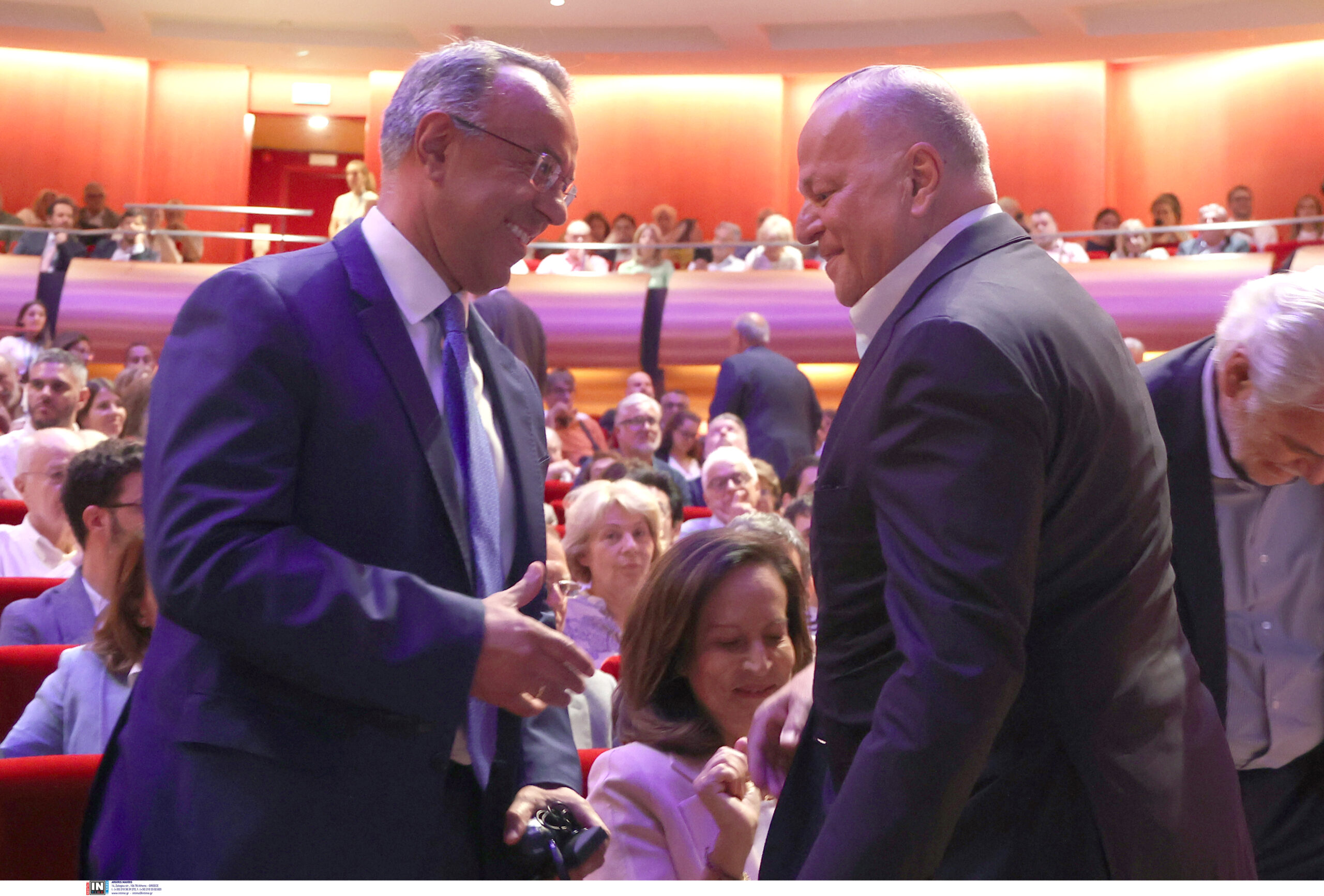

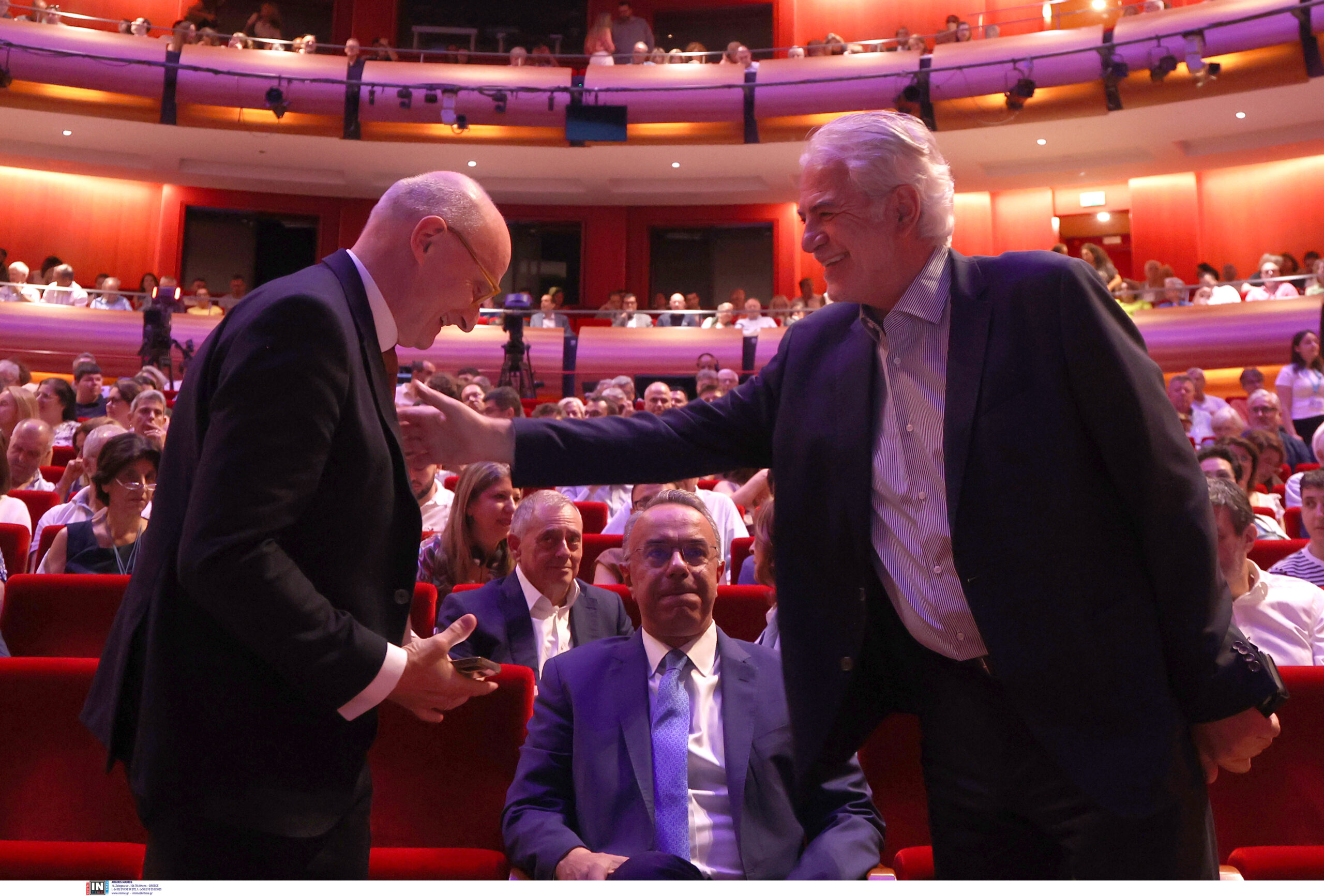


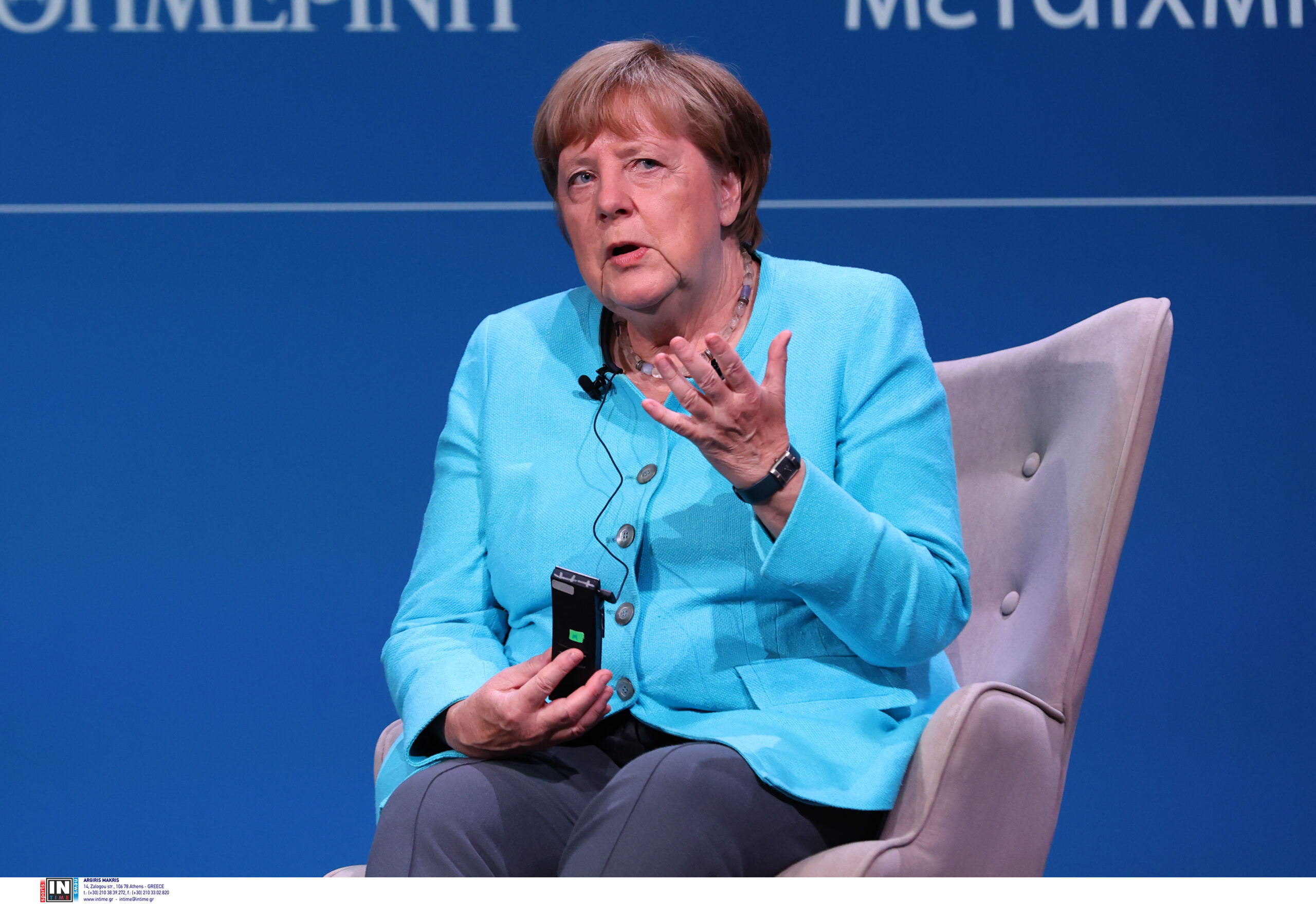
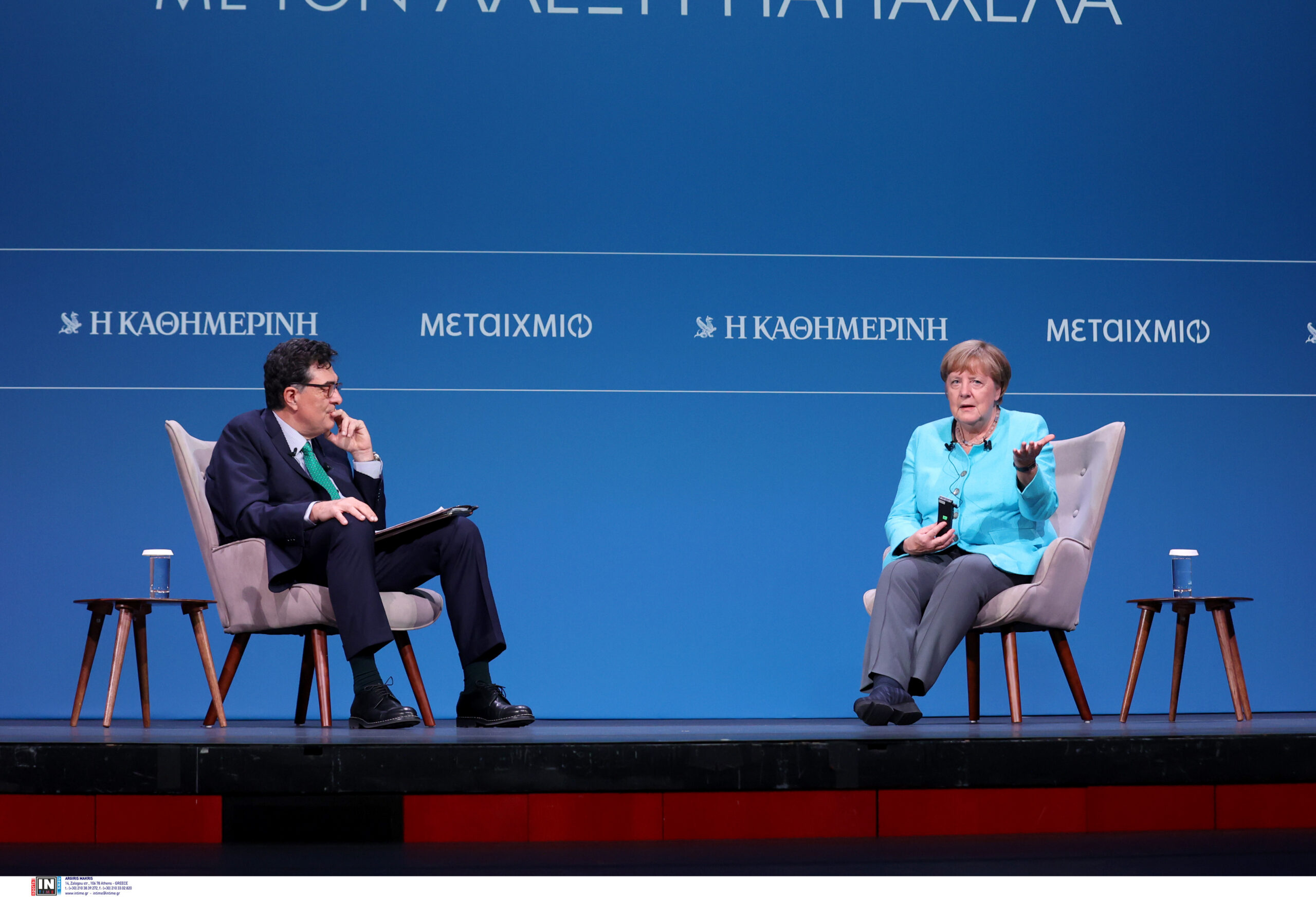
“I broke into tears, I experienced great pressure”
“Obama didn’t know the legal part well, the ECB’s objectives. The US Federal Reserve has other responsibilities. Obama didn’t know everything, at some point I broke into tears, I had been under pressure.
He wanted us to tell the ECB to provide more liquidity. My advisors told me I couldn’t do such a thing, it wouldn’t even be accepted by German courts and I had told Obama that.
Draghi, as ECB president, ‘created the Bazooka’ and said whatever it takes. He did it on his own.”
